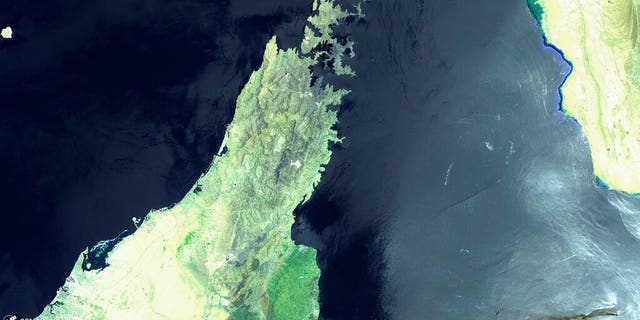
Spokesman of the Atomic Energy Organization of Iran (AEOI), Behrouz Kamalvandi, seen at a July 2018 news conference in Tehran. Atta Kenare/AFP/Getty Images hide caption
Within days Iran will exceed the limit on its stockpile of uranium under a 2015 nuclear deal, according to a spokesman for the country's atomic energy agency, who also said Tehran would increase uranium enrichment levels in violation of the agreement, "based on the country's needs."
The remarks come amid increased tension between the U.S. and Iran, particularly after last week's attack on two tankers in the Gulf of Oman that Washington has blamed on Tehran. Iran has denied any involvement.
Under the multilateral Joint Comprehensive Plan of Action (JCPOA) that the U.S. withdrew from a year ago, Iran can keep no more than 300 kilograms (661 pounds) of uranium enriched no higher than 3.67% — far below the 90% level considered suitable for building nuclear weapons.
At a news conference at the Arak Nuclear Complex that was carried live Monday on Iranian television, Behrouz Kamalvandi, a spokesman for the Atomic Energy Organization of Iran, said that stockpile limit could be exceeded within 10 days.
"We have quadrupled the rate of enrichment and even increased it more recently, so that in 10 days it will bypass the 300 kg limit," Kamalvandi said.
He added that his country needs uranium enriched to 5% for its Bushehr Nuclear Power Plant, built in the 1990s with Russian help and uranium of 20% purity to be used as fuel for the Tehran Research Reactor (TRR), which the the U.S. supplied to Iran in 1967.
Although not weapons-grade, 20% purity is generally considered "highly enriched" uranium and as The Associated Press notes, "... going from 20% to 90% is a relatively quicker process, something that worries nuclear nonproliferation experts."
Even so, Kamalvandi held out the possibility that "There is still time ... if European countries act."
"Iran's reserves are every day increasing at a more rapid rate. And if it is important for them (Europe) to safeguard the accord, they should make their best efforts... As soon as they carry out their commitments, things will naturally go back to their original state," he said, according to AP.
That sentiment was echoed by Iranian President Hassan Rouhani on Monday. "It's a crucial moment, and France can still work with other signatories of the deal and play an historic role to save the deal in this very short time," he was quoted by the Fars News Agency as saying during a meeting with France's new ambassador in Iran.
Reuters reports that Rouhani said the collapse of the nuclear deal would not be in the interests of the region and the world.
Following last week's alleged attack on the tankers Front Altair and Kokuka Courageous near the strategic Strait of Hormuz, Secretary of State Mike Pompeo said "there's no doubt" that Iran was responsible for disabling the vessels.
"The intelligence community has lots of data, lots of evidence," Pompeo said on Fox News Sunday. "The world will come to see much of it, but the American people should rest assured we have high confidence with respect to who conducted these attacks as well as half a dozen other attacks throughout the world."
On CBS' Face the Nation, Pompeo said the U.S. was "considering a full range of options."
"We are confident that we can take a set of actions that can restore deterrence, which is our mission set," he said.
On Monday, Iran's Armed Forces Chief of Staff again denied the country's involvement in the attacks.
"Regarding the new incidents in the Persian Gulf... if the Islamic Republic of Iran decides to block exports of oil through the Strait of Hormuz, it is militarily strong enough to do that fully and publicly," Major General Mohammad Bagheri said, according to Fars News Agency.
https://www.npr.org/2019/06/17/733327050/iran-says-it-will-exceed-nuclear-deals-limit-on-uranium-in-10-days
2019-06-17 11:22:00Z
52780315687635









